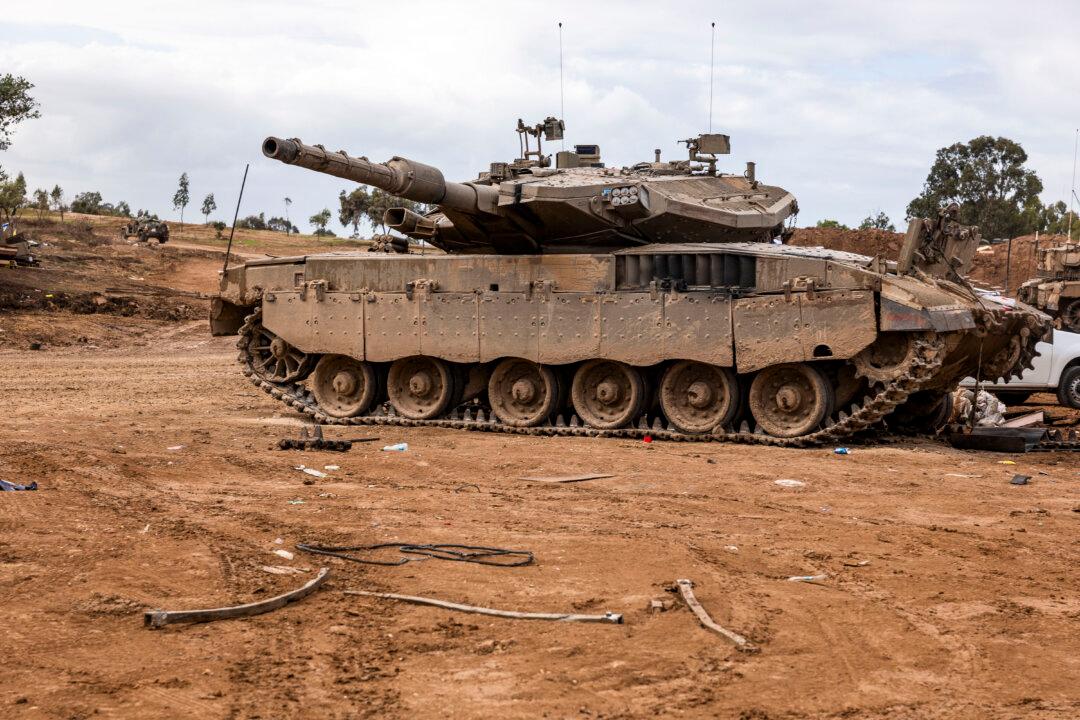Israel’s military said on June 16 that it would pause fighting during daytime hours along a route in southern Gaza to free up a backlog of humanitarian aid deliveries for Palestinians in the restive area.
“To increase the volume of humanitarian aid entering Gaza and following additional related discussions with the U.N. and international organizations, a local, tactical pause of military activity for humanitarian purposes will take place from 08:00 until 19:00 every day until further notice along the road that leads from the Kerem Shalom Crossing to the Salah al-Din Road and then further north,” the Israeli Defense Forces (IDF) said in a statement on June 16.





